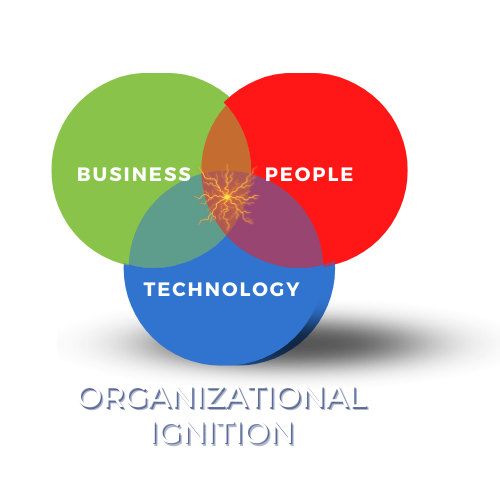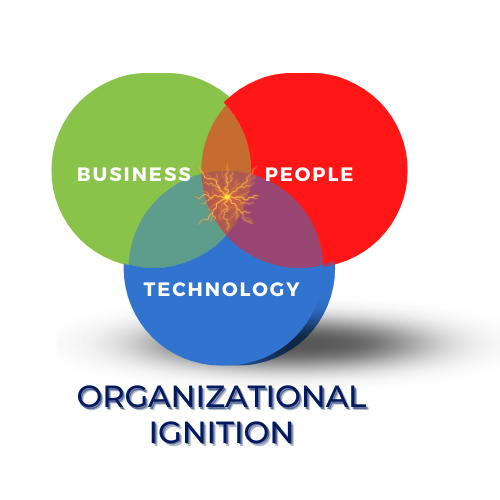Advanced Topics By Industry/Discipline
People
Technology/Facilities
Education is the process of equipping students to live productive lives. From children to adults, there are many educational techniques and challenges. Unruly students who may not, actually, be bad – just misunderstood. People who just can’t seem to be able to learn may, actually, just be struggling because they have a different life experience from which to understand lessons. In addition to the pedagogical challenges, there are challenges in running an educational institution. Staff who don’t get along may not understand how to communicate with those not like them because they were never given the skills to do so. Leaders may unconsciously impose discipline in an inequitable manner because they were never trained in a restorative justice model.
Living into diversity, equity, and inclusion (DEI) can have a profound positive impact on both the instructional and administrative aspects of education. But it takes commitment and intentionality by everyone in the institution.
Learning Objectives
Living into diversity, equity, and inclusion (DEI) can have a profound positive impact on both the instructional and administrative aspects of education. But it takes commitment and intentionality by everyone in the institution.
Learning Objectives
- Understand how DEI impacts learning
- Understand how DEI impacts the educational institution
- Describe steps to improve an educational institution’s performance through DEI
The purpose of a healthcare provider is to help keep people healthy. Achieving this purpose involves resolving to assist diverse people, But how does a provider live into that resolution? Come hear how one healthcare provider implements a DEI initiative that focuses on patients, employees, and communities while striving for best-in-class organizational performance.
Learning Objectives
Learning Objectives
- Describe steps that can be used in identifying stakeholders in a DEI initiative
- Describe steps that can be used to create a DEI vision
- Describe steps that can be used to perform a gap analysis between where the organization is today and the vision for tomorrow
- Describe components of a DEI Plan integrated with an overall organizational Strategic Plan
Are you aware that 100% of people are biased but most do not know it? Would your clients recognize a microaggression when they see it? Do they understand the impact of microaggressions on their organization? Do they understand whether their work environment is welcoming to diverse people? If you answered NO to any of these questions or just want to brush up on the topics, this session is for you? Come participate in an interactive session that takes you through how biases lead to microaggressions, organizational policies, and culture that is, at best, unwelcoming and at worse, illegal.
Learning Objectives
Learning Objectives
- Understand what unconscious implicit bias is and how it impacts performance
- Interpret types of microaggressions and their impact to your practice
- Begin to analyze the “welcomness” of your workplace for diverse employee
Coming Soon...
Building the right project team members is a critical enabler for the success of a project. But, what constitutes the “right” project team members?
Several studies as reported in an article by David Rock and Heidi Grant in the November 4, 2016 Harvard Business Review suggest that diverse teams outperform homogeneous teams. They are more objective and more innovative.
Come hear a discussion of how age, race, ethnicity, gender, and ability impact projects and can contribute to greater success in your projects.
Learning Objectives
Several studies as reported in an article by David Rock and Heidi Grant in the November 4, 2016 Harvard Business Review suggest that diverse teams outperform homogeneous teams. They are more objective and more innovative.
Come hear a discussion of how age, race, ethnicity, gender, and ability impact projects and can contribute to greater success in your projects.
Learning Objectives
- Understand how diversity can impact a project team
- Know how to leverage a diverse project team for project success
This workshop will explain the value of civility and respectful behavior in a construction company setting and the basic concepts that lead to effectively interacting with people from various backgrounds, cultures (Black, Asian, Latinx, Indigenous, etc.) and personality characteristics.
The workshop will address the following issues.
• What civility and respect are
• Why civility and respect across difference is important
• Definitions of diversity, culture equity, inclusion, implicit bias
• The harm that is done to individuals and the company when unintended discrimination occurs.
The workshop will address the following issues.
• What civility and respect are
• Why civility and respect across difference is important
• Definitions of diversity, culture equity, inclusion, implicit bias
• The harm that is done to individuals and the company when unintended discrimination occurs.
According to IDC, Digital Transformation (DX) is disrupting every industry. It has become a central component of major successful organizations. Many have described it as the new way organizations can achieve business outcomes such as product and service improvement and innovation, operational efficiency, and increased agility across the value chain by using new-generation technology and platforms. Is that really the case? Is it really new? What does it really mean? And how does an organization make the transformation?
Learning Objectives
By the end of this session, you will:
• Understand the basic premise of Digital Transformation
• Understand the business and technology concepts and best practices involved in Digital Transformation
• Understand the high-level actions leaders should take toward achieving Digital Transformation
Schedule This Workshop
Learning Objectives
By the end of this session, you will:
• Understand the basic premise of Digital Transformation
• Understand the business and technology concepts and best practices involved in Digital Transformation
• Understand the high-level actions leaders should take toward achieving Digital Transformation
Schedule This Workshop
What are your next steps? COTS vs. Roll your Own? MSP or DIY? By the end, you will know what your next steps are.
Schedule This Workshop
Schedule This Workshop
Selection criteria, Governance, ITSM. Technology Risk Profile. Holding your MSP’s feet to the fire. By the end, you will know how to select an MSP and how to make sure they provide you the support you need.
Schedule This Workshop
Schedule This Workshop
IBM, Dell, HP, Acer. Client, server, cloud. There are many options in choosing hardware for your company’s digital transformation. By the end of this session, you will understand the basic options and how to make a basic choices that will set you up for success.
Schedule This Workshop
Schedule This Workshop
There are many software applications out there. And there are many ways software applications can be used (On-premise, Saas). How do you choose? Applications only automate processes you define. First, what are your processes? Next, what is your Technology Risk Profile? What criteria should you consider? By the end, you will know how to select an application.
Schedule This Workshop
Schedule This Workshop
Applications gather and produce data. Lots of data. What should you do with it? How do you bring clarity to chaos. This session introduces you to the ways you can use data to ignite your organization’s performance?
Schedule This Workshop
Schedule This Workshop
Exploring how to measure DT. (requires 1st the organization be able to measure it’s own effectiveness/efficiency.) By the end of this session you will be able to measure the success of your IT efforts.
Schedule This Workshop
Schedule This Workshop
We use technology - the application of scientific knowledge to the practical aims of human life or, as it is sometimes phrased, to the change and manipulation of the human environment (OED) - to automate our work. To aid us in making decisions or even make decisions for us. To help us see things and do things that we ourselves cannot do because of lack of time, lack of knowledge, or lack of ability. Implemented as machines, hardware, and/or software, technology has evolved and shaped our world in many ways. Tools such as the internet and email for communications, word processing, spreadsheets and presentations for office productivity, electronic databases for record keeping, CNC Machines, robots, smartphones, Internet of Things (IoT) devices, and artificial intelligence are ubiquitous in our lives.
We tend to think that technology is objective, cold, and dispassionate. But it is not! Technology is built by humans. And we humans are all biased. So, bias is built into our technology. This has been proven by research performed by organizations such as the World Economic Forum, MIT, and others. This session will explore how to recognize bias in not only technology products but also how we use technology.
Learning Objectives
By the end of this session, you will be able to:
We tend to think that technology is objective, cold, and dispassionate. But it is not! Technology is built by humans. And we humans are all biased. So, bias is built into our technology. This has been proven by research performed by organizations such as the World Economic Forum, MIT, and others. This session will explore how to recognize bias in not only technology products but also how we use technology.
Learning Objectives
By the end of this session, you will be able to:
- recognize bias in technology
- identify ways to minimize the negative impact of bias in how technology is used
- advocate for the elimination of bias in technology



